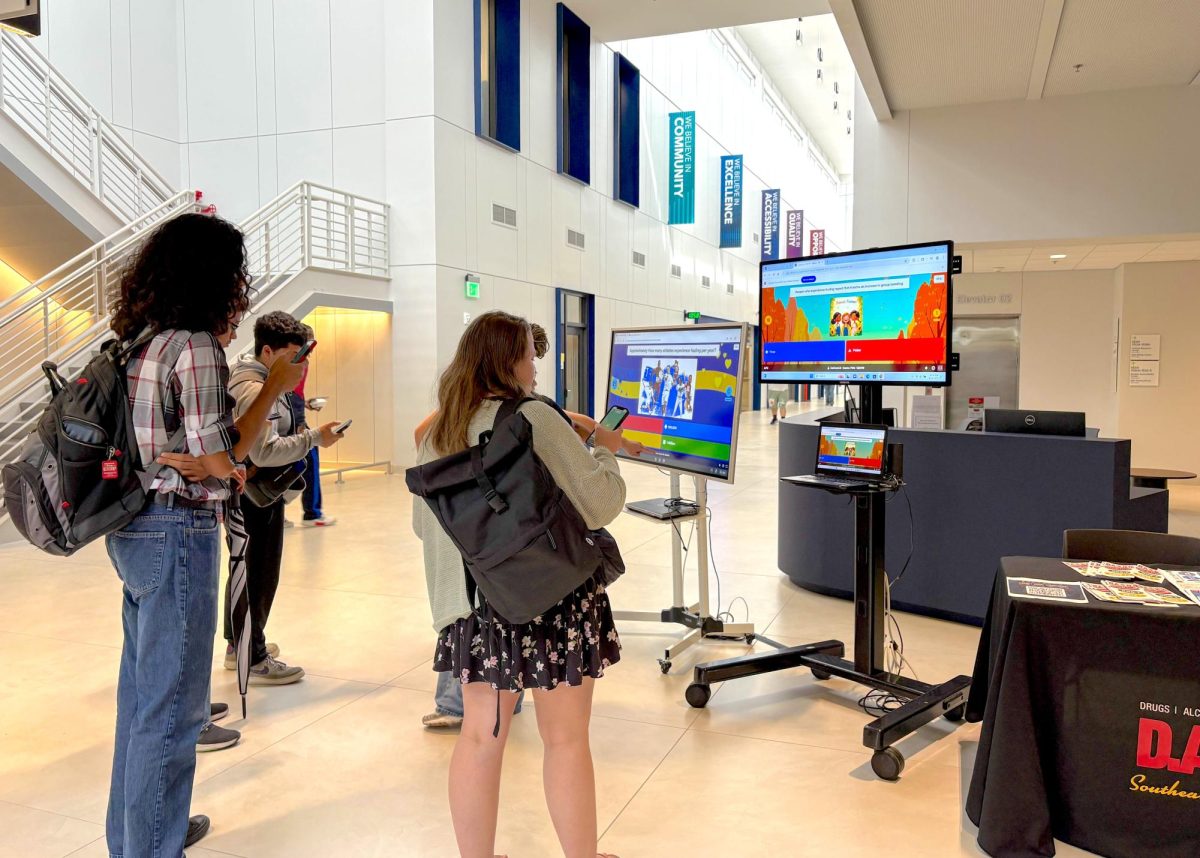Longtime instructor and coordinator of the culinary program at SE Campus, Chef Katrina Warner helps students achieve their culinary goals. This year, she completed one of her own.
She won the American Culinary Federation’s Chef Educator of the Year award, one of the top prizes in a competition that honors chef educators nationwide.
Warner had to become a certified executive chef to qualify and then went through a lengthy process to win. Having instructors certified as executive chefs means that when students graduate with their associate degree, they also earn their culinarian certification.
Culinary awards are not new to Warner. She previously won the Texas Chefs Association’s Dallas chapter Educator of the Year in 2019 and state in 2021.
As a teen, she worked in food services, first in multiple areas, including dishwasher, food prep and hotline plating. This solidified her desire to work in the culinary area.
“Food service has always been in my family,” Warner said. “My mother was a home ec teacher for 30 years. My brother is also an executive chef. He went through chef training, and so, I just kind of followed him.”
Warner said she’s passionate about attracting more students to the program.
She has focused on creating a well-rounded program so students are familiar with all aspects of food services, including hospitality management.
“It’s been morphed and changed to keep up with all the food service trends that are out there to make sure we are relevant,” Warner said.
She also works to recruit students through dual credit programs in high schools and assorted community outreach initiatives, such as participating in food bank events and taste festivals.
Erika Vargas, a student who had Warner as an instructor about 10 years ago, said she liked her teaching style. 
“She’s always been very straight and to the point when it comes to her instruction. There’s no extra fluff if she has it,” Vargas said.
Working in food services has multiple layers, like an onion, which also requires thinking about food allergies. Warner and other instructors must adjust based on students’ needs.
“We had a student who was so highly allergic to garlic that we pretty much took it out of any class she was in just so she wouldn’t have a reaction,” Warner said.
SE Campus president Andy Bowne said Warner’s award shows her dedication to her profession and her role as an educator. For TCC, it helps attract top industry faculty who can combine real-world knowledge with the curriculum.
“Not only is it important for our students to gain the skills, she and fellow faculty member in the program do a great job of upgrading their skills and making sure they’re prepared to work in the workplace,” Bowne said. “But then the partnerships with employers, is critically important, so that they can apply in the real world what they’re learning in the classroom.”
SE culinary instructor Alison Hodges and Warner have been working together since 2006 and have built a professional relationship as well as a close friendship.
“We have pretty much all been there,” Hodges said, “and so we spent a lot of time, like vacations and holidays and time off together.”
Warner’s relationship with food goes beyond her work in food services or teaching. She believes that food can also take a holistic approach in her professional and personal cooking.
Hodges said Warner always tries to add more healthy options to their curriculum, such as gluten-free and sugar-free foods.
This became more evident after Warner and Hodges lost a good friend to whom Warner dedicated her ACF award.
“We feel like we could have extended his life if he had been eating better,” Hodges said. “So, she is very adamant about making sure that she is making healthy choices.”
Warner feels it’s important to have the food people love but make healthier substitutions, like substituting regular sugar for honey, stevia, or monk fruit.
“I am so highly against, so highly against processed food and fast food,” Warner said.
Warner ’s family practiced traditional family dinners with everyone around the table, which is a habit that she does with her own kids now.
“Every Sunday, I make dinner,” she said. “They can invite friends. If the neighbors want to come over, they can, it’s whoever wants to come over.”



































